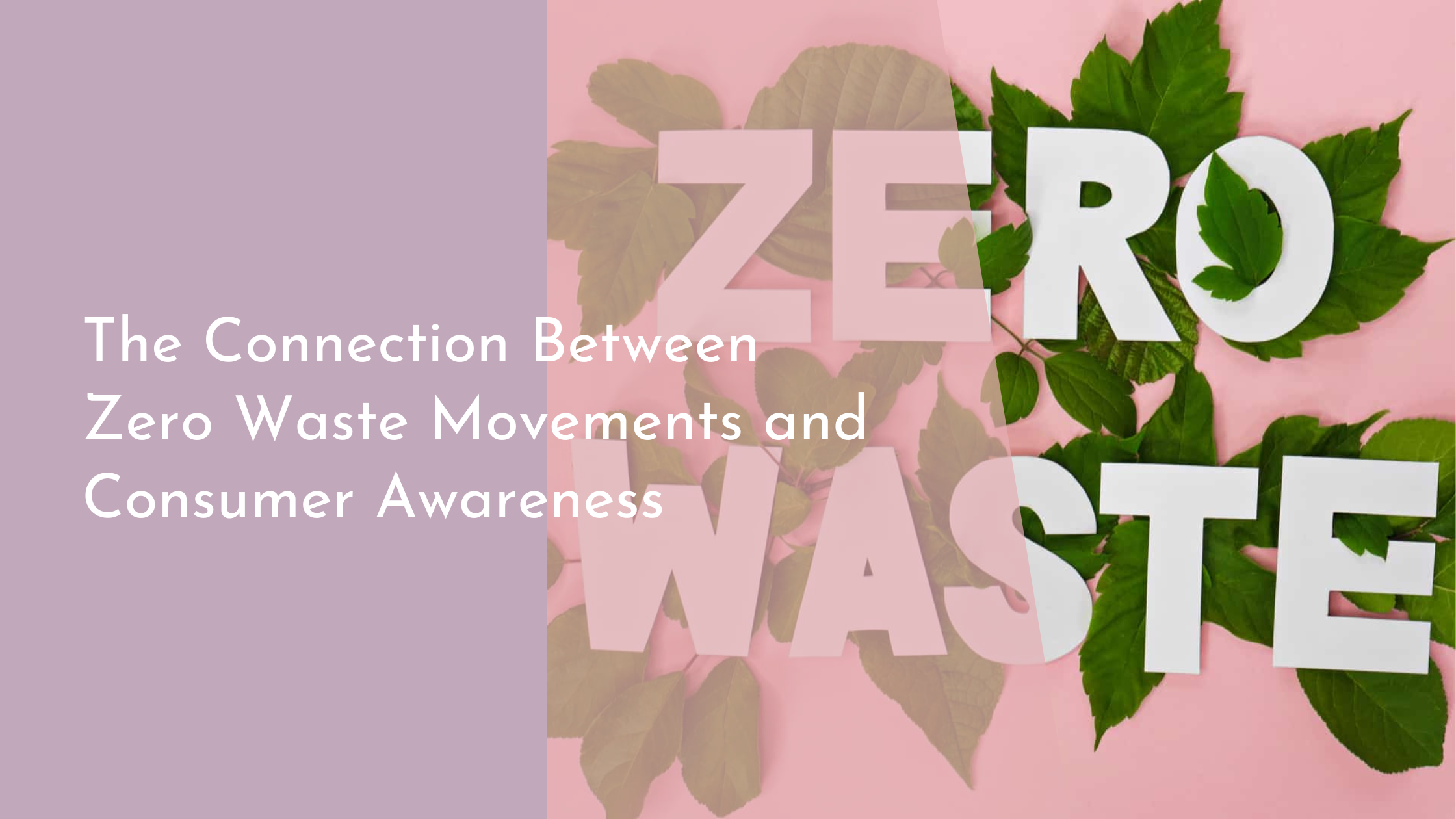The Connection Between Zero Waste Movements and Consumer Awareness
In recent years, the zero waste movement has gained significant traction as a response to the growing concerns over environmental degradation and waste management. This movement is not just a call to reduce waste but also a catalyst for enhancing consumer awareness about the environmental impact of their choices. As more individuals and communities embrace zero waste principles, the ripple effect is seen in the lifestyle choices people make and the overall push towards a more sustainable and eco-friendly world. In this article, we delve into the origins of zero waste movements, the rise of eco-conscious consumers, how zero waste inspires informed choices, and the collective effort to build a greener future.
Understanding Zero Waste Movements’ Origins
The zero waste movement finds its roots in the late 20th century as a response to the increasing levels of waste being produced by industrialized nations. Initially, it was a concept embraced by activists and environmentalists who sought to minimize waste generation by redesigning systems and processes to be more sustainable. The movement gained momentum as more data emerged about the detrimental effects of waste on ecosystems and the urgent need for sustainable waste management solutions. Early proponents of zero waste emphasized the importance of reducing, reusing, and recycling as a means to close the loop on waste production and consumption.
As the movement progressed into the 21st century, it became more structured with the establishment of organizations and initiatives dedicated to promoting zero waste practices. Influential figures and pioneers such as Bea Johnson, author of “Zero Waste Home,” popularized the movement by demonstrating the feasibility and benefits of a low-waste lifestyle. This led to greater public interest and participation, with communities around the globe adopting zero waste goals. The movement continues to evolve, driven by innovation and a shared commitment to environmental stewardship.
The Rise of Eco-Conscious Consumers
With increasing awareness of environmental issues, a new wave of eco-conscious consumers has emerged, eager to make a positive impact through their purchasing decisions. These consumers prioritize sustainability and ethical considerations when choosing products, often opting for those with minimal environmental footprints. The rise of social media and the accessibility of information have empowered individuals to become more informed about the consequences of their consumption habits and the benefits of zero waste practices.
This shift in consumer behavior has prompted businesses to innovate and adapt to meet the demand for sustainable products and services. Many companies now offer eco-friendly alternatives and strive to reduce their own waste output, recognizing the competitive advantage of tapping into this growing market segment. Eco-conscious consumers are not only changing the way businesses operate but are also influencing policy changes and encouraging broader societal shifts towards sustainability.
How Zero Waste Inspires Informed Choices
The zero waste movement serves as a powerful motivator for individuals to re-evaluate their consumption patterns and make more informed choices about the products they use and discard. By adopting zero waste principles, consumers are encouraged to think critically about the lifecycle of the products they purchase, from production to disposal. This heightened awareness leads to more deliberate shopping habits, such as buying in bulk, choosing reusable items, and supporting companies with sustainable practices.
Additionally, zero waste living often involves a commitment to continuous learning and community engagement. Workshops, online forums, and local initiatives provide platforms for sharing knowledge and experiences, fostering a sense of community among individuals striving for similar goals. Such interactions enhance consumer education, making it easier for people to adopt zero waste practices and inspire others to do the same. By embracing informed choices, consumers help to create a ripple effect that spreads awareness and encourages sustainable living.
Building a Greener Future Together
The transition to a zero waste society requires collective effort and collaboration among individuals, businesses, and governments. Communities worldwide are banding together to implement zero waste initiatives that address local needs and empower residents to contribute to a sustainable future. By working together, these communities can share resources, ideas, and best practices, amplifying the impact of their efforts and driving meaningful change.
Governments play a crucial role in facilitating this transition by implementing policies and regulations that support waste reduction and sustainable practices. Incentives for businesses adopting zero waste principles, funding for recycling infrastructure, and educational campaigns are just a few examples of how governmental support can accelerate progress. Together, through shared commitment and action, we can build a greener, more sustainable future for generations to come.
The zero waste movement embodies a hopeful vision for a sustainable world where waste is minimized, and resources are used responsibly. By inspiring individuals to make informed choices and fostering eco-conscious consumerism, the movement has already sparked significant change. As we continue to embrace zero waste principles, it is crucial to maintain our collective resolve and work together—individuals, businesses, and governments alike—to ensure a healthier planet and a more sustainable future for all.

